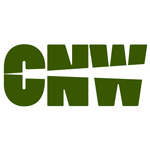Florida’s New Legislation: Hemp Products Limited and Delta-8 THC Banned

Florida, known for its progressive stance on cannabis, has recently taken a step back with new legislation that limits hemp products and bans Delta-8 THC. This move has sparked controversy and debate among industry stakeholders, consumers, and lawmakers alike. The new law, signed by Governor Ron DeSantis, has significant implications for the state’s burgeoning hemp industry and the consumers who rely on these products.
Understanding the New Legislation
The new legislation, Senate Bill 1020, redefines hemp to exclude all forms of synthetic cannabinoids, including Delta-8 THC. This compound, derived from hemp, is known for its mild psychoactive effects and has gained popularity for its potential therapeutic benefits. However, the new law effectively bans the sale and distribution of Delta-8 THC products in Florida.
Furthermore, the legislation imposes stricter regulations on hemp products. It mandates that all hemp products must be sold by licensed retailers and requires manufacturers to provide detailed labeling, including a scannable barcode linked to a certificate of analysis performed by an independent testing laboratory. This move aims to ensure product safety and protect consumers from potentially harmful products.
Implications for the Hemp Industry
The new legislation has significant implications for Florida’s hemp industry. The ban on Delta-8 THC products could potentially lead to a decline in sales for many businesses that have capitalized on the compound’s growing popularity. According to the U.S. Hemp Roundtable, a coalition of hemp companies, Delta-8 THC products accounted for up to 50% of sales for some retailers.
Moreover, the stricter regulations on hemp products could increase operational costs for businesses. The requirement for detailed labeling and independent testing could potentially lead to higher production costs, which could be passed on to consumers in the form of higher prices.
Consumer Reactions and Concerns
The new legislation has also sparked concerns among consumers. Many users of Delta-8 THC products have expressed disappointment and frustration over the ban. They argue that the compound provides therapeutic benefits, such as pain relief and anxiety reduction, without the intense psychoactive effects associated with Delta-9 THC, the main active ingredient in marijuana.
Furthermore, the potential increase in the price of hemp products due to stricter regulations could make these products less accessible to consumers, particularly those who rely on them for therapeutic purposes.
Conclusion: A Step Backwards or Forwards?
In conclusion, Florida’s new legislation limiting hemp products and banning Delta-8 THC has sparked controversy and debate. While the law aims to ensure product safety and protect consumers, it also has significant implications for the hemp industry and the consumers who rely on these products.
Whether this move is a step backwards or forwards for Florida’s cannabis industry remains to be seen. It will largely depend on how the industry adapts to these changes and how consumers respond in the long run. However, one thing is clear: the debate over cannabis and its derivatives is far from over in Florida and across the nation.
By C.N.W
Keywords: Florida, legislation, hemp products, Delta-8 THC, ban, cannabis industry, consumer reactions
Sources:
- Florida Senate Bill 1020 (2021)
- U.S. Hemp Roundtable


